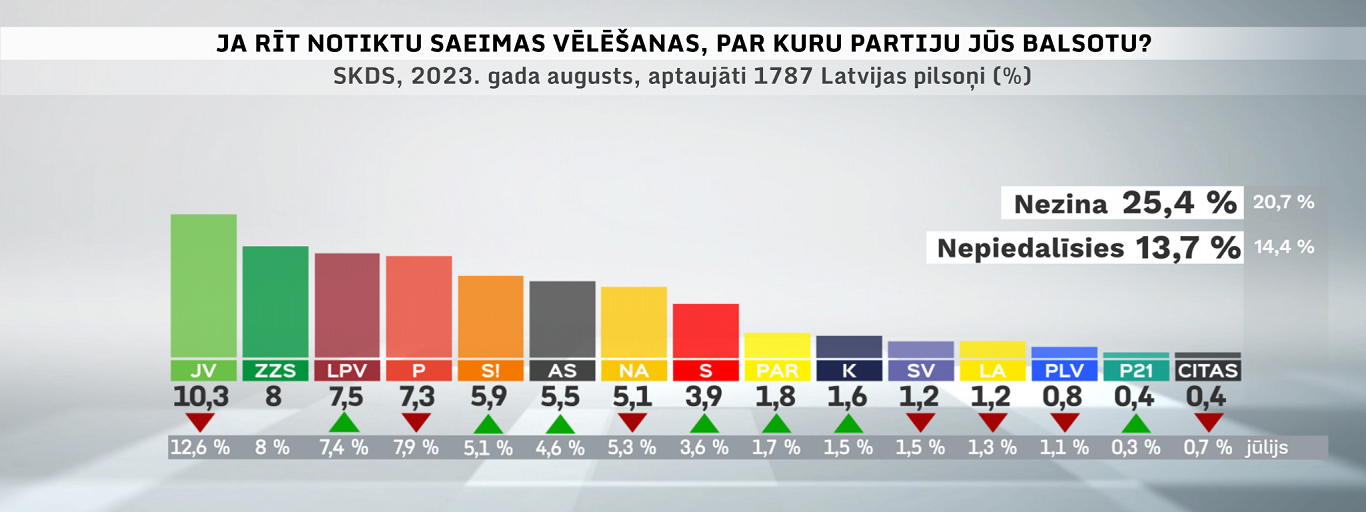In August, compared to July, the popularity of New Unity (JV) decreased by 2.3%. Despite this, New Unity still maintains its leading position and 10.3% of those surveyed said they would vote for it if elections were held tomorrow.
The fall in New Unity's support is not surprising in the month when Prime Minister Krišjānis Kariņš announced his resignation and lengthy negotiations to form a new government were ongoing – as indeeed they still are.

In second place with 8% support is the Greens and Farmers Union (ZZS), whose rating has not changed. Currently in opposition, ZZS is lined up to be part of the potential new government.
The populist opposition "Latvia in first place" (LPV) party led by Ainārs Šlesers managed to climb to third place with 7.5% support, slightly ahead of the Progressives (P) on 7.3% – the other party likely to be part of the incoming administration.
On the rise during August was the opposition "For Stability!" (S!) party, which increased its support from 5.1% to 5.9% and has now nosed ahead of both the United List (AS, 5.5%) and National Alliance (NA, 5.1%) – the two parties currently being dropped from government by talks on forming a new coalition.
No other party can muster even 4% support, with several once-influential parties languishing well below that. Harmony (S) mustered an improved 3.9%, but the Conservatives (K) with 1.6% and For! (PAR) with 1.8% look all but defunct and very different from the parties that held multiple ministerial portfolios in recent years.
However, as always with Latvian political polling, a huge chunk of the potential electorate remains either undecided or unengaged. More than a quarter of those asked (25.4%) said they didn't know for whom they would vote, and another 13.7% said they would have no intention of participating in elections.
Commenting on the poll data September 13, political commentator Filips Rajevskis told LTV the 2.3% drop in the rating of New Unity is substantial. He added that the next months will show whether the decline in the ratings of the leading party will become a trend, but "this kind of news is quite bad news in the process of forming a government".
Rajevskis said that if the government fails to be approved this week, a serious question arises as to whether the proposed government model can be formed at all.




























